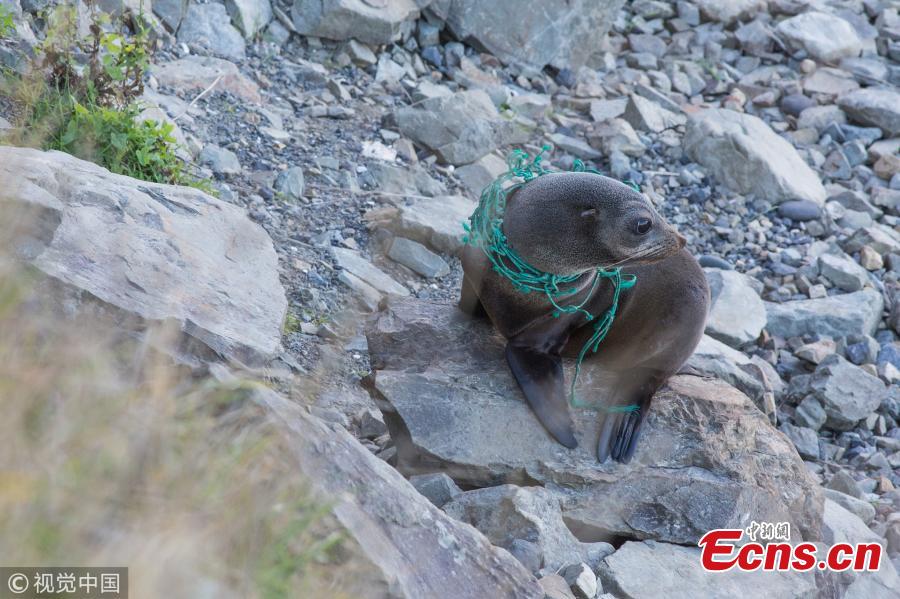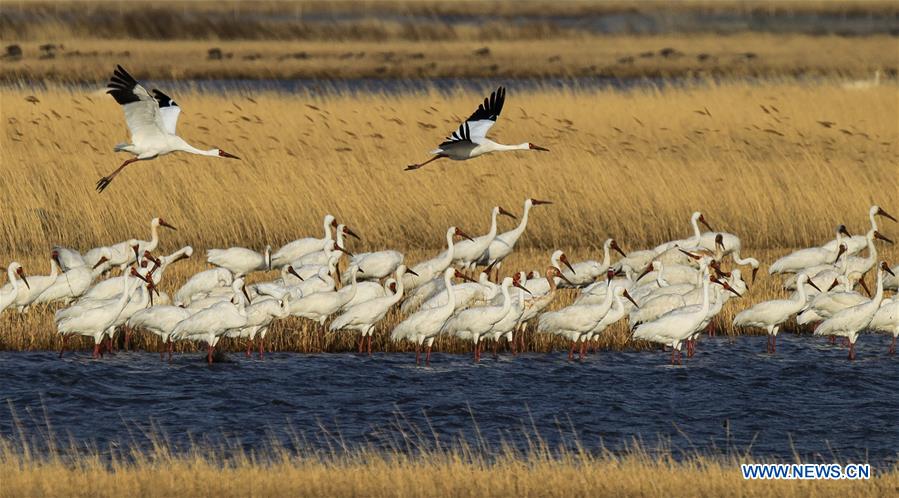Bird photographer Su Yuanjiang enjoys taking inspirational pictures, but has taken some heartbreaking ones, too.
In a photo he shot years ago on Guanling Mountain, in the Guangxi Zhuang autonomous region, an osprey flapped its wings furiously in the sky, its feet caught by a mousetrap. "It could only fly, fly, fly before becoming exhausted," Su said.
Such scenes have become less common thanks to the efforts of forestry workers, police and volunteers.
The world has billions of migratory birds that travel along eight routes every year, including three passing through China. Guangxi lies along one linking East Asia and Australia.
More than 300 species of migratory birds pass through Guangxi each year, with about half attracted to the Beibu Gulf for its beaches, forests and islets.
"April and May is the migratory season. Every night, thousands of birds fly here, heading for their homes in the north. Some of them are rare," Su said while patrolling Guanling Mountain, which is administered by the city of Beihai.
Su is a member of a 400-strong volunteer team set up in 2010 to combat rampant poaching of migratory birds in Beihai. Eating wild birds used to be a tradition in the gulf area.
When patrolling the mountain at night, Su and other volunteers search for lights. "Where there is light there is probably a trap for birds," he said.
Poachers bring lights to the mountain and turn them on in misty weather to lure birds that have lost their sense of direction into nets, said Sun Renjie, from Guangxi's mangrove research center.
The volunteers dismantle the nets and give information on armed poachers to the police. The police have also cracked down on sales of birds in food markets.
"Over the past two years, gunshots have seldom been heard on Guanling Mountain," Sun said. "The hunters are usually driven away before taking action."
In Fangchenggang, another city on the Beibu Gulf coast, the bird protection and rescue station in the Beilunhe nature reserve and forestry authorities have jointly dismantled more than 10,000 meters of bird nets since August.
"We have set up cameras to better monitor the poachers," said Tang Shangbo, head of the station.
Beihai's volunteer association holds educational events in communities and schools, as well as free bird-watching activities.
"Raising awareness is just as important as crackdowns on poaching," association head Xu Hai'ou said.
More bird-watchers are now visiting the gulf shore, bringing opportunities to villagers.
In the past two to three years, birders from Sichuan province, Yunnan province and Chongqing have flocked to Niulu village near Shanxinsha Island, which is a stop for more than 30 species of birds, including the spoon-billed sandpiper, an endangered wader with a global population of just 500.
"Tourism has not only increased villagers' incomes but also changed their attitude toward birds," said Pan Daman, Party secretary of Niulu.
Yu Fengqin, from the China Wildlife Conservation Association, said the country has stepped up efforts to protect migratory birds and is seeing less poaching.
"Today, even pupils know birds are humans' friends," photographer Su said.


















































